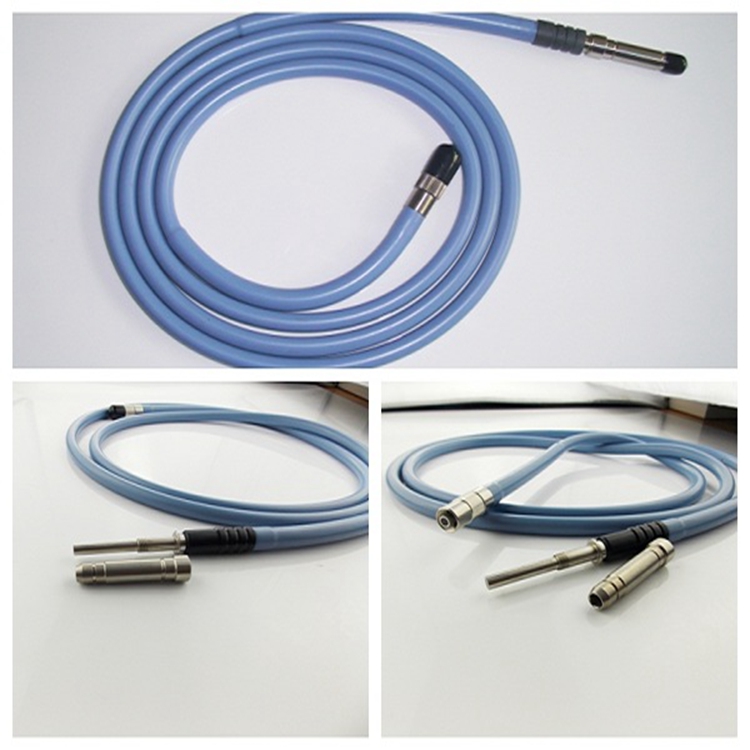光纤光缆系列

光纤跳线系列

HPCS光缆系列

光电复合系列

光纤收发系列

单模&多模光纤系列

光纤连接器&伺服系列

光纤收发器件系列

光纤配件系列

照明定制系列

混凝土建筑系列

传能光纤

医疗及特种类

伺服系列

传感系列

音频应用

汽车应用

安华高应用

荧光光纤应用

弧光保护应用

飞机应用

HPCS应用

日本三菱

特种音频

发光织物

医疗及特种

定制产品

成像光纤

新能源储能系列

定制化系列































The endoscope made of optical fiber is soft, thin and bendable. When it is inserted into the patient's stomach, the patient will not have pain. In addition to the stomach, the fiber optic endoscope can also be used in the esophagus, rectum, bladder , uterine and other deep exploration. On the one hand, fiber optic endoscope can be used to check whether the patient's organs have lesions, and more importantly, it can input laser energy into the internal organs, irradiate or excise the diseased tissue, and play the role of a scalpel. Laser scalpels connected with optical fibers are currently in clinical use.
1. The principle of the fiber optic endoscope is similar to that of the optical mirror. In order to enter the smaller hole, we choose the fiber optic scope. The clarity of the fiber optic scope depends on the number of fiber bundles.
2. Optical fiber endoscope: apex part, bending part, insertion part, operation part, light guide hose, light guide connecting part, the apex part of the eyepiece is formed into a small rigid section, with direct view type (front view type), side view type, strabismus type. The gastroscope and colonoscopy adopt the direct view method, and the duodenoesophagoscope adopts the side view method. There are: objective lens hole (image guide beam), light hole (light guide beam), air-water hole (nozzle), biopsy hole on the top of the apex. The bending part adopts the method of pulling by four steel wires. The head has four steel wires connected to the control part. Twist the upper, lower, left, and right handwheels of the control part to pull the steel wires in different directions respectively, so that the bending head swings in the corresponding direction. In the bending part, there are light guides, image guide beams, various pipes and traction devices, bending tubes, and bending rubbers.
3. The hose part includes a bending part and an insertion part, also called a coiled tube. It is equipped with light guide, image guide beam, water and gas pipeline, biopsy pipeline (and suction pipeline), traction steel wire, outer stainless steel hose and metal mesh tube, and the outer layer is a smooth plastic sleeve. The fiber bundle that transmits the image constitutes the core part of the fiber endoscope, which is composed of tens of thousands of extremely thin glass fibers. According to the principle of optical total reflection, all glass fibers must be covered with a lower refractive index film to prevent It is guaranteed that all the light transmitted by the inner core fiber can be totally reflected. The transmission of a single fiber can only produce one light spot. In order to see the image, a large number of fibers must be assembled into bundles. If the image is to be transmitted to the other end to form the same image, each fiber must be in its own position. The two ends are arranged in the same position, which is called the guide beam. When a guide beam is disconnected, there will be one more black spot in the image. The light guides do not need to be arranged in the same position, and the brightness will be significantly reduced if a lot of them are disconnected.